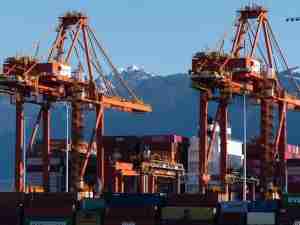British firms are yet to see any upside from Brexit, according to one of the UK’s top executives, who urged Prime Minister Rishi Sunak to improve the trade agreement with the European Union to boost growth.
There’s “no evidence” yet of a dividend fro the UK from leaving the bloc, Shevaun Haviland, director-general of the British Chambers of Commerce business lobby group, said in an interview Monday. Sunak and Chancellor of the Exchequer Jeremy Hunt should cut post-Brexit paperwork for exporters and simplify tax rules via new agreements with the EU, she said, citing them as cost-free ways to help struggling British companies.
Her remarks come as Hunt prepares to set out £50 billion ($57 billion) of spending cuts and tax increases as he tries to stabilize public finances and restore market confidence after the disastrous premiership of Liz Truss.
But businesses are concerned that Sunak’s administration lacks a long-term plan for growth. The Bank of England said last week Britain faces the prospect of a two-year recession -- the longest since records began in 1920 -- due to a mix of rising interest rates, weak consumer demand and high energy prices.
The trading environment for businesses is worse than during coronavirus and it’s likely there’ll be more corporate insolvencies, Haviland said, adding that the chancellor should resist cutting spending in areas such as infrastructure.
“That’s not going to set us up for the future,” Haviland said, a former head of business engagement in 10 Downing Street, stressing the need to continue investing in the HS2 high-speed rail link and projects such as nuclear power and renewable energy. “We need to keep those things ticking over so that we’re in a good place to power ourselves out of the recession.”
On Brexit, Haviland said Sunak should pursue a veterinary agreement with the EU -- which would remove burdensome border checks on food products that have hurt exports -- and a simplification of VAT rules, akin to the EU’s agreement with Norway. She also called for changes to the visa system for skilled worker, citing manufacturers turning down work due to a lack of staff.
“We are not talking about uncontrolled immigration, we are talking about very specific sectors,” Haviland said, adding that she raised the issue recently with new Business Secretary Grant Shapps. “It’s also driving wage increases and small businesses suffer more.”
The EU is the UK’s largest commercial partner but trade between the two has declined since Brexit, with paperwork and costs causing some firms to cease moving goods. UK exports to the EU have, however, risen in recent months due to the amount of fuel sold to the bloc following Russia’s war in Ukraine.
On the prospect of Britain diverging from EU regulations post-Brexit, Haviland said UK firms had spent a lot of time and resource aligning with EU.
“Generally, deregulation doesn’t excite people,” she said.








